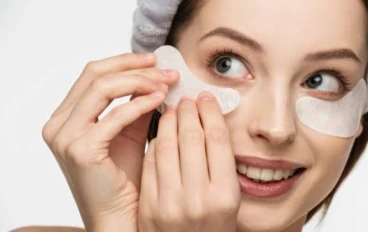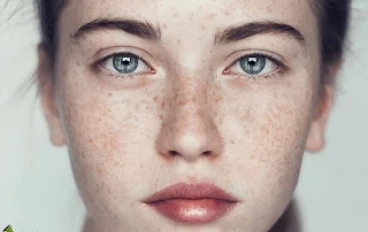
Acne Treatment: Tips and Tricks for Clearer Skin
Acne is a common skin condition that affects millions of people worldwide. From teenagers to adults, acne can be a source of frustration, self-consciousness, and even pain. Fortunately, there are many treatments available that can help reduce the appearance of acne and promote clearer, healthier skin. In this article, we'll explore some of the most effective acne treatments, from over-the-counter remedies to prescription medications, as well as lifestyle changes that can make a difference.
Understanding Acne: Causes and Symptoms
Before we dive into treatments, it's important to understand what causes acne and what symptoms to look for. Acne is caused by the overproduction of sebum, an oily substance produced by the skin's sebaceous glands. This excess sebum can clog pores and lead to the formation of pimples, blackheads, and whiteheads.
Acne can appear anywhere on the body, but it's most commonly found on the face, neck, back, and chest. Symptoms of acne include:
- Red, inflamed skin
- Pimples or pustules
- Blackheads
- Whiteheads
- Oily skin
- Scarring
Over-The-Counter Acne Treatments
Many people start with over-the-counter (OTC) acne treatments before seeking medical advice. OTC treatments can be effective for mild to moderate acne and typically contain active ingredients such as salicylic acid, benzoyl peroxide, or alpha-hydroxy acids.
Salicylic acid works by exfoliating the skin and unclogging pores, while benzoyl peroxide helps kill bacteria and reduce inflammation. Alpha-hydroxy acids (such as glycolic or lactic acid) can help improve skin texture and reduce the appearance of acne scars.
When using OTC treatments, it's important to follow the instructions carefully and give the product time to work. It can take several weeks to see results, and some products may cause skin irritation or dryness. If you're unsure which OTC treatment is right for you, consult with a dermatologist or pharmacist.
Prescription Acne Medications
For more severe or persistent acne, prescription medications may be necessary. These include topical or oral medications that can help regulate sebum production, reduce inflammation, or kill bacteria.
Topical retinoids, such as tretinoin or adapalene, can help unclog pores and improve skin texture. Topical antibiotics, such as clindamycin or erythromycin, can help kill bacteria and reduce inflammation. Oral medications, such as antibiotics or hormonal treatments (such as birth control pills), may also be prescribed for certain types of acne.
As with OTC treatments, it's important to follow the instructions carefully and let your doctor know if you experience any side effects. Some prescription medications can cause skin dryness, sensitivity to sunlight, or other issues.
Lifestyle Changes for Acne Prevention
In addition to using topical or oral medications, there are several lifestyle changes that can help prevent acne or reduce its severity. These include:
- Keeping skin clean and moisturized
- Avoiding picking or squeezing pimples
- Using non-comedogenic (non-pore-clogging) cosmetics and skincare products
- Avoiding tight clothing or gear that can irritate the skin
- Eating a balanced, healthy diet rich in fruits and vegetables
- Reducing stress through exercise, meditation, or other techniques
Conclusion
Acne can be a frustrating and difficult condition, but with the right treatments and lifestyle changes, it's possible to achieve clearer, healthier skin. Whether you your dermatologist to develop a treatment plan that's right for you. Additionally, taking care of your skin through regular cleansing and moisturizing, avoiding harsh chemicals or irritants, and making healthy choices such as a balanced diet and stress reduction can go a long way in preventing and treating acne.
Frequently Asked Questions (FAQs)
What is the most effective treatment for severe acne? There is no one-size-fits-all answer to this question, as the most effective treatment for acne will depend on the individual and the severity of their acne. For severe acne, prescription medications such as isotretinoin may be necessary, but it's important to consult with a dermatologist to determine the best course of treatment.
Can diet affect acne? Yes, there is evidence to suggest that diet can play a role in the development and severity of acne. Eating a diet rich in fruits and vegetables and low in processed foods and sugars may help prevent acne.
Can stress cause acne? While stress doesn't directly cause acne, it can contribute to its development or exacerbation. Stress can cause hormonal changes in the body that can lead to increased sebum production and inflammation, which can contribute to acne.
Are natural remedies effective for treating acne? There is some evidence to suggest that certain natural remedies, such as tea tree oil or aloe vera, may be effective in treating mild to moderate acne. However, it's important to consult with a healthcare professional before trying any new treatment, natural or otherwise.
How long does it take to see results from acne treatments? The length of time it takes to see results from acne treatments can vary depending on the individual and the severity of their acne. It can take several weeks to several months to see improvement, and it's important to be patient and consistent with treatment. If you're not seeing results after a reasonable amount of time, consult with your dermatologist to explore other options.opt for OTC treatments or prescription medications, it's important to work with

































